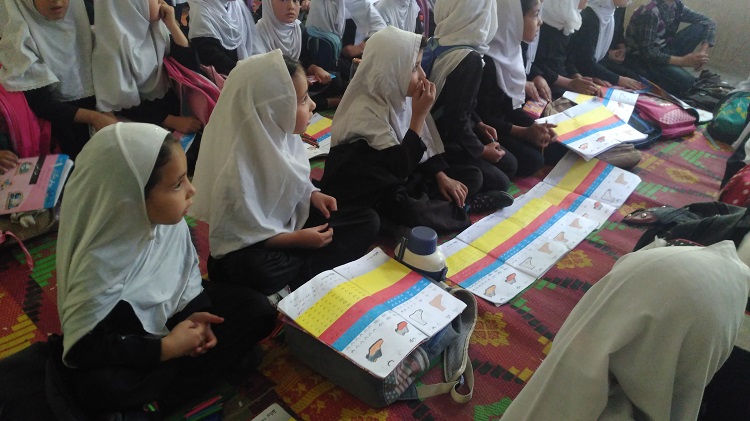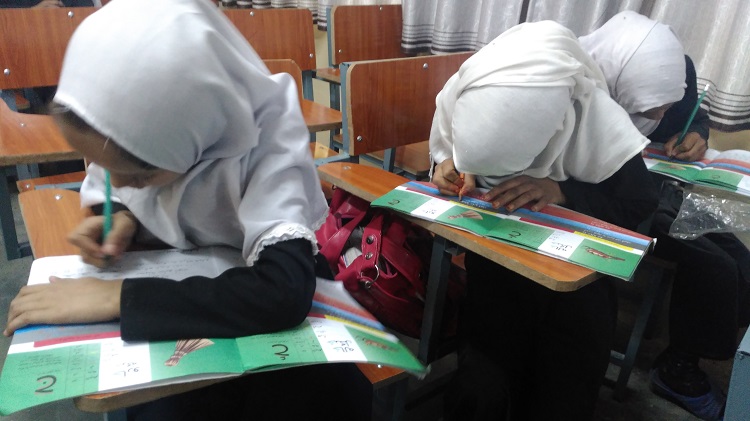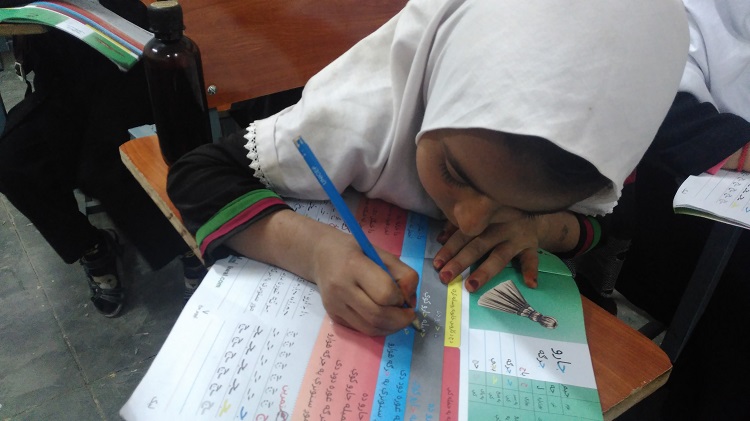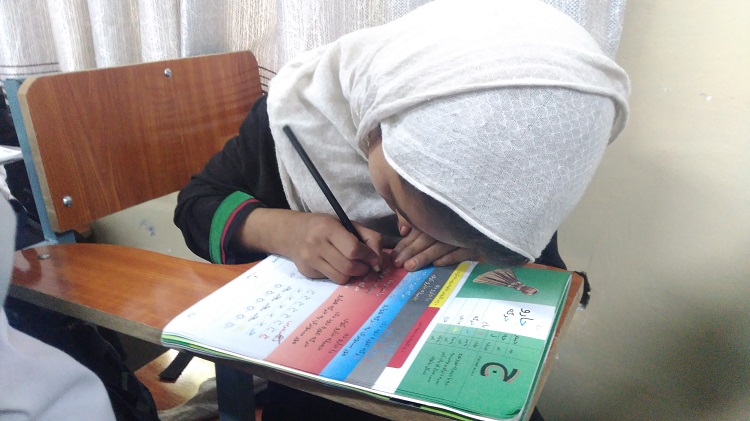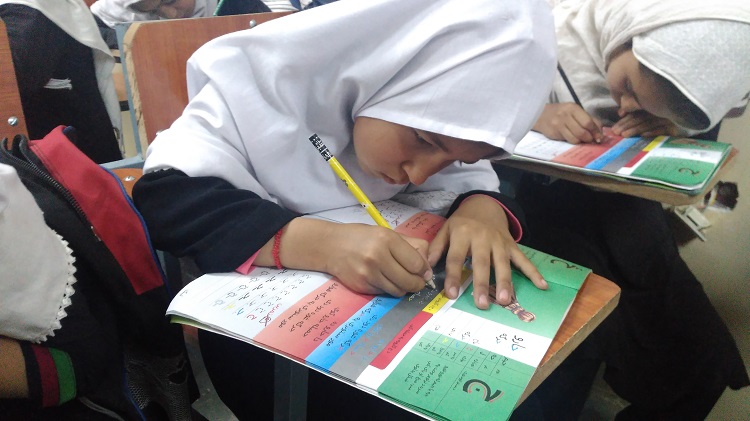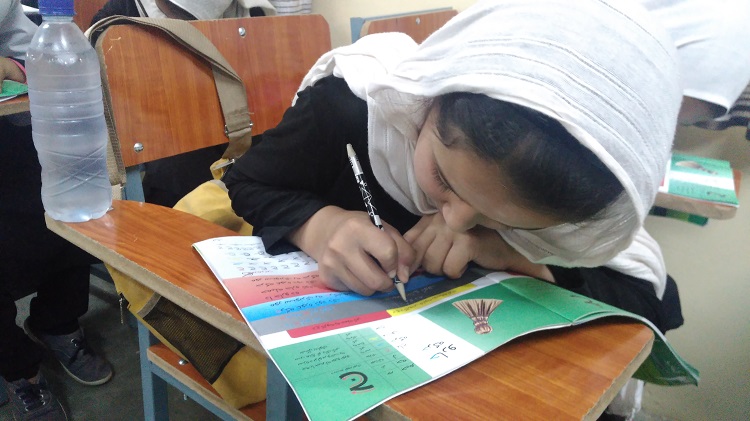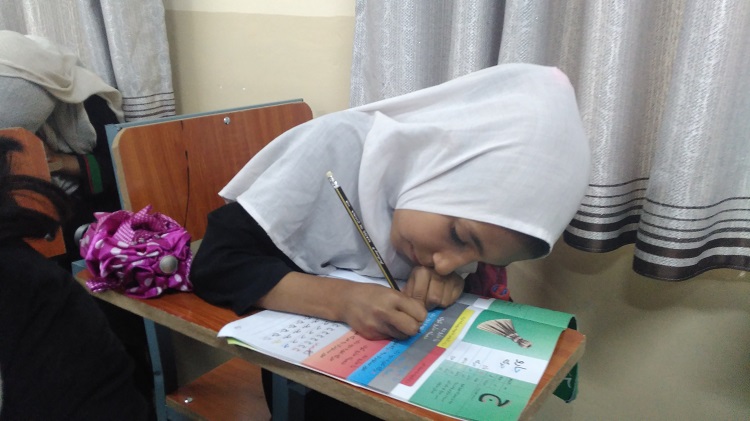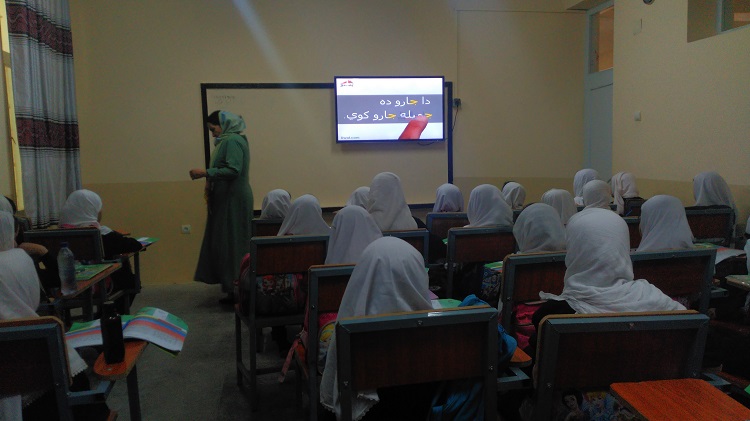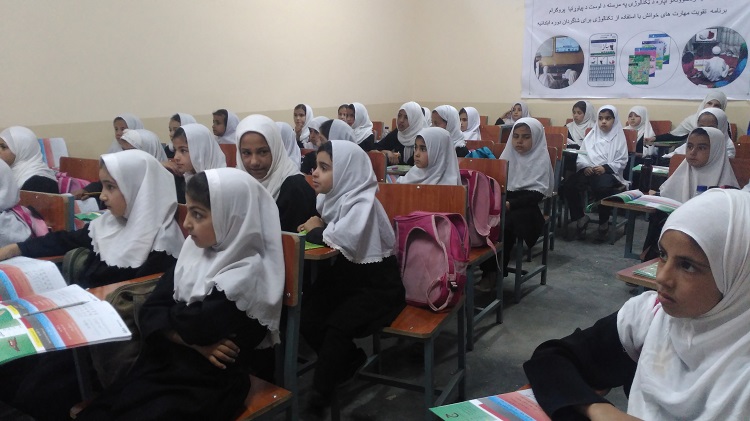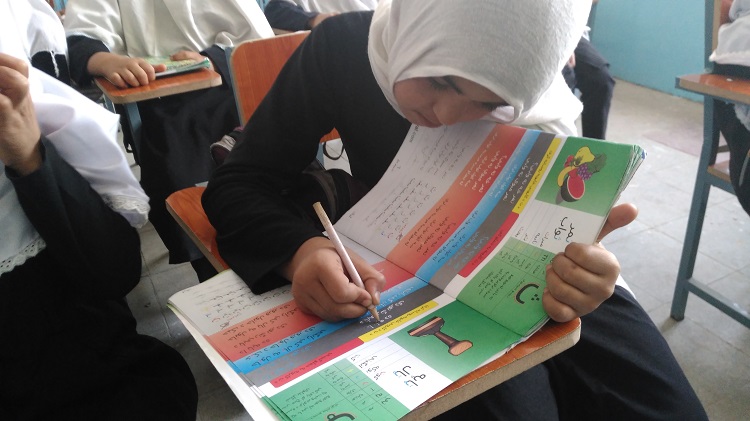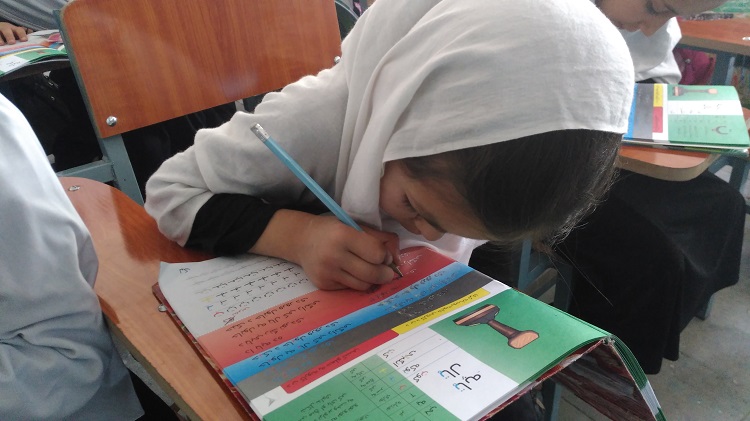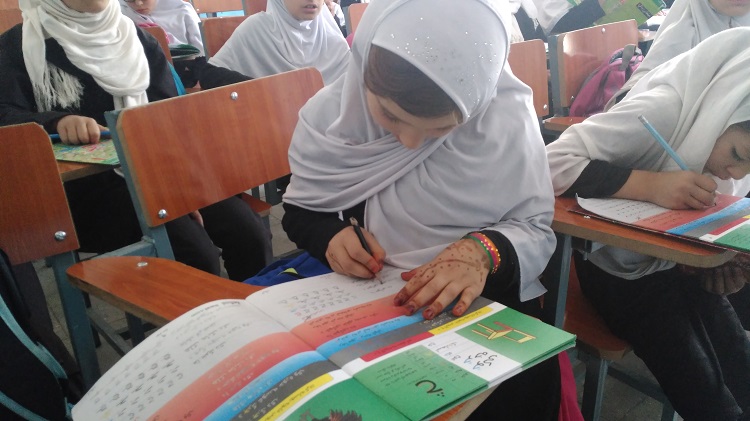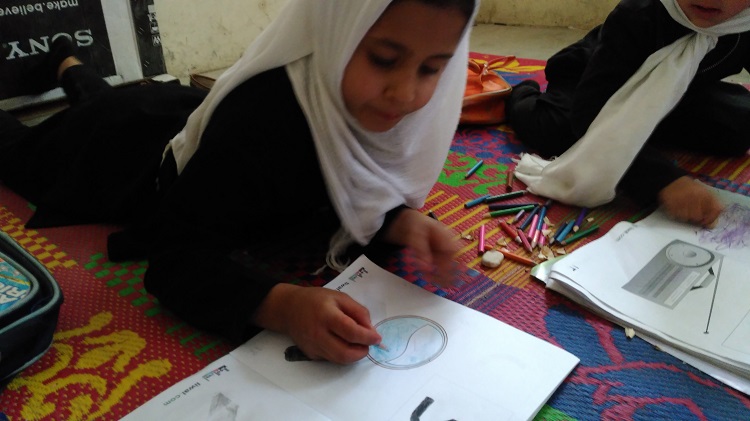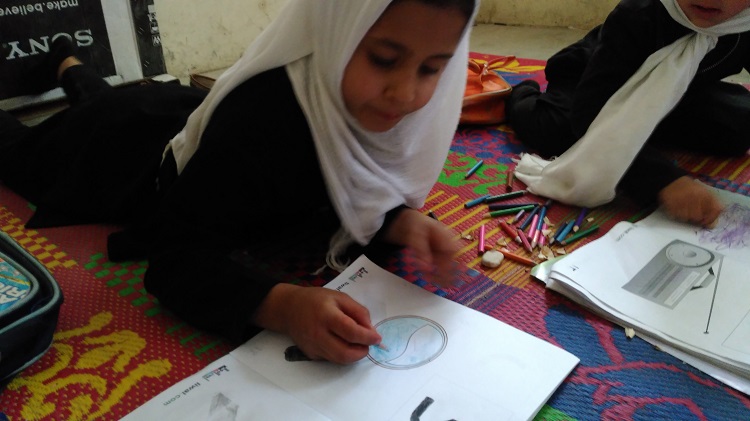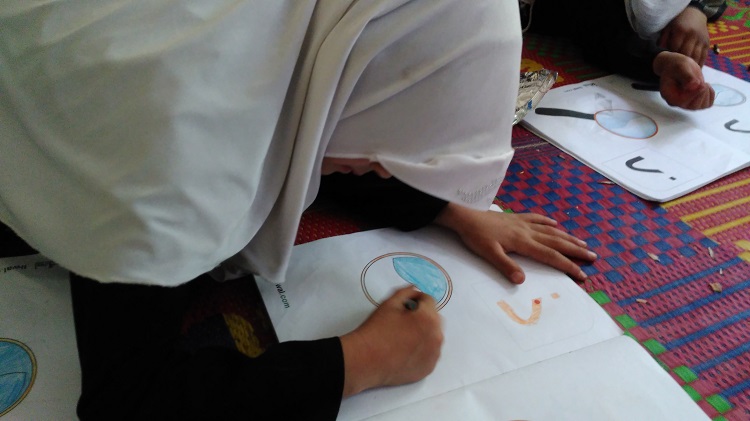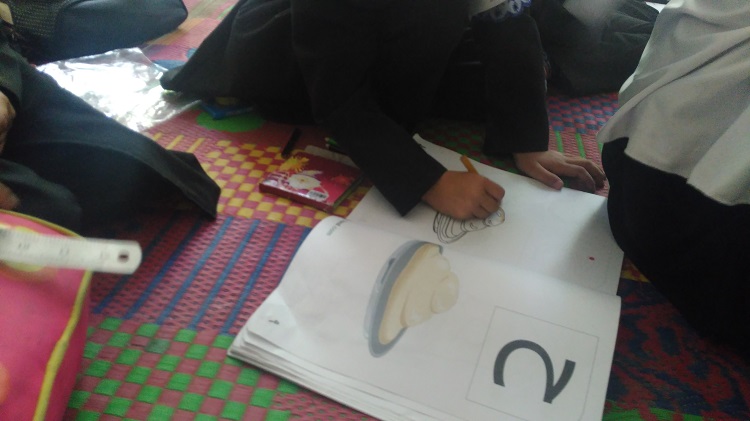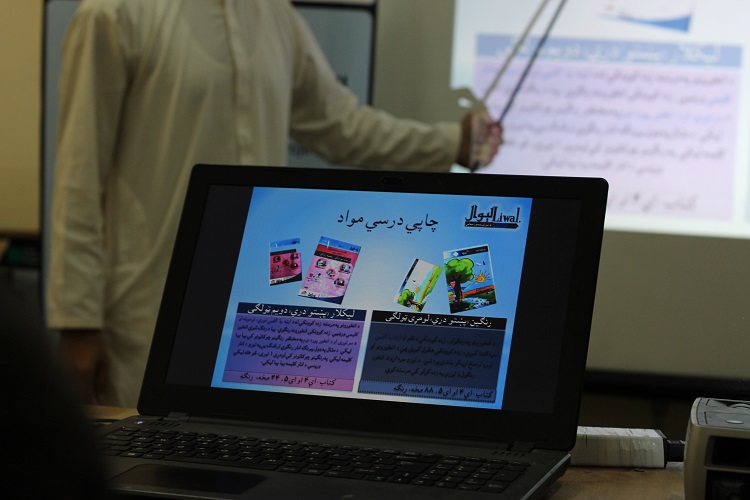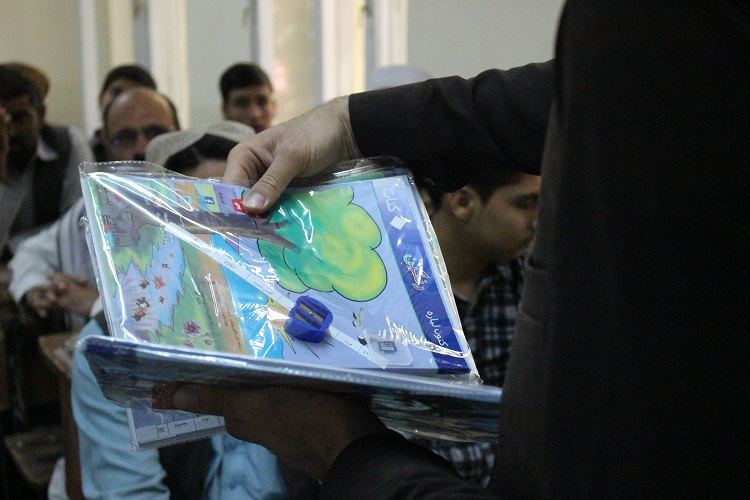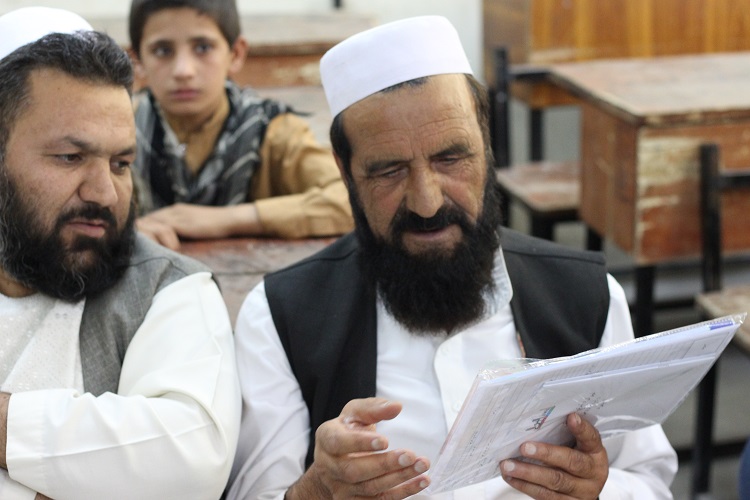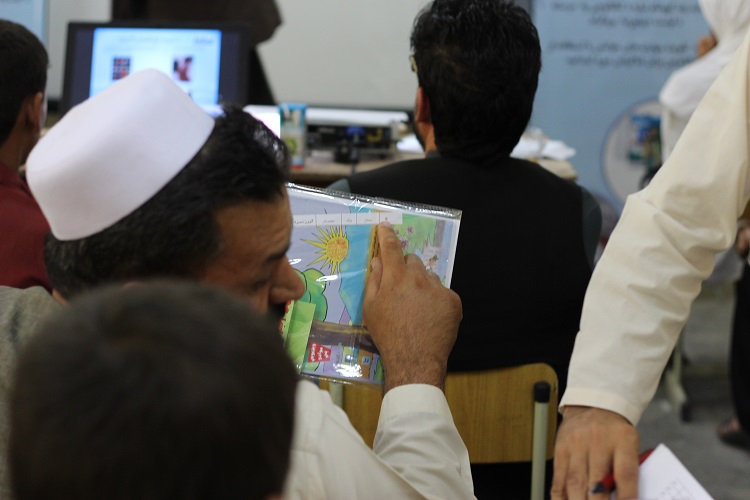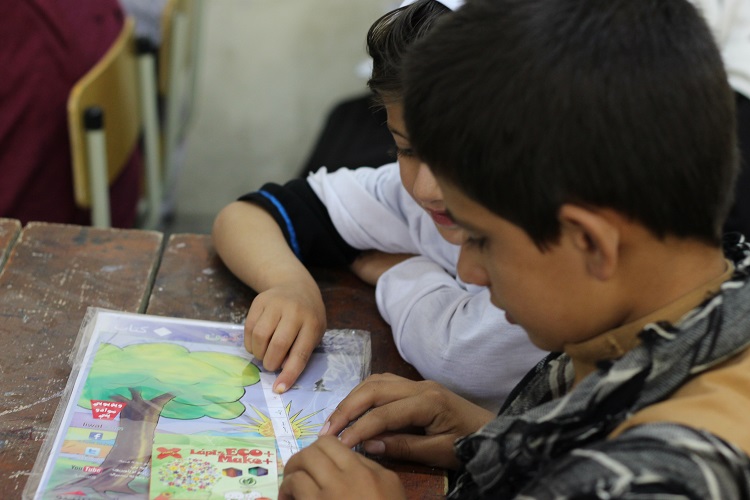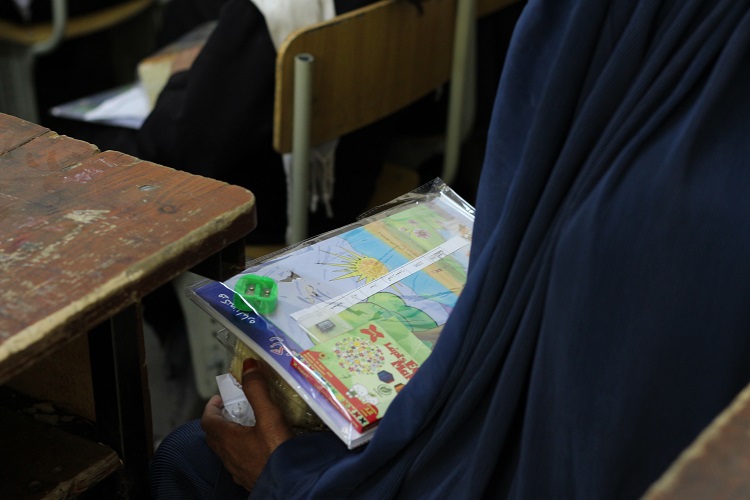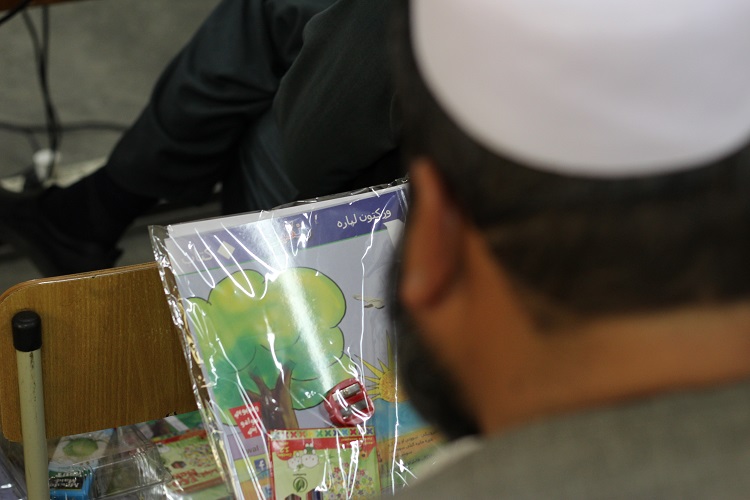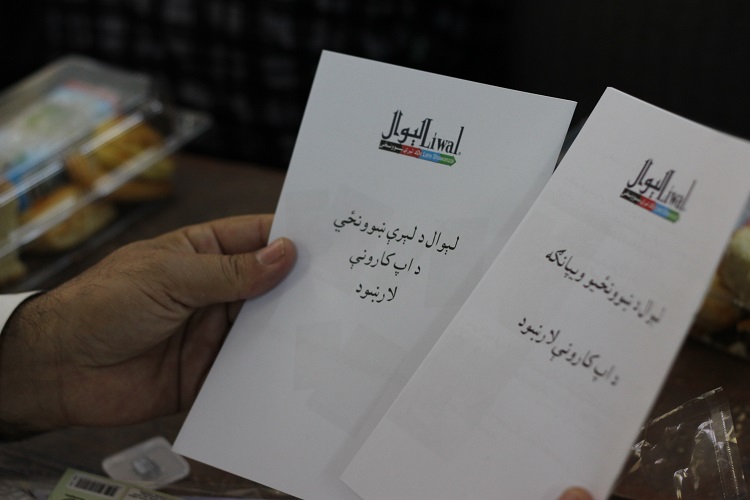The project was implemented in two provinces Kandahar and Nangarhar, reaching 8,000 students (5,000 in Nangarhar and 3,000 in Kandahar) in 8 selected schools (4 in each province). Training was provided to 173 teachers and 35 school administrators on how to use the Liwal technology to implement this project.
Furthermore, 2,700 applications were distributed to parents to encourage reading at home. The great majority of project stakeholders were aware of the innovative teaching materials (100% of Provincial MoE staff, 86% of teachers and 87% of parents).
List of schools in which Liwal Distance School Technology was implemented:
Nangarhar:
1. Bi Bi Hawa High School
2. Ayesha Sadiqa High school
3. Ningarhar High school
4. Bi Bi Zainab High school
Kandahar:
1. Safia Ama Jana High School
3. Ahmad Shah Baba High School
3. Malalai High School
4. Aino # 1 High School
Target grade school students have had increased access to materials that have encouraged them to read. The teachers and the students utilized all digital and non-digital materials (8,206 workbooks, as well as 4,176 storybooks in Nangarhar and 2,552 in Kandahar) distributed in schools to their full extent and it was found that 97% of teachers used the materials based on the schedule that was given to them. A total of 16 smart HDTVs were distributed (2 per school). These were placed in two specific rooms in each intervention school. Workbooks linked to the lessons on the Liwal app were distributed to all the targeted students in Grades 1-3. All schools ensured physical space was made available to accommodate the creation of reading corners in all Grade 3 classes and also provided user-friendly spaces to store the TVs.
Due to the large number of students in each reading skill enhancement classes, a significant number (18%) asked that more study materials be provided. A large number of parents/community members (83%) also donated books to the school library. 74% of schools established logbooks for the reading corners, and another 80% of schools set rules and regulations for library usage. Students attended Paper Theater sessions that provided them with meaningful and engaging group-work activities that encouraged reading.
The project offers an innovative solution to improve the reading skills of early grade students in Afghanistan. By providing access to simple technologies and high-interest books via Smart TVs in classes, the project was able to improve current teaching practices in intervention schools to encourage literacy. Students who participated in the project showed significant literacy skill improvement, including increased school attendance, across eight schools in Kandahar and Nangarhar provinces. The project was also successful in ensuring that parents were more engaged in their children’s education, thus having a positive impact on the ‘home curriculum’ too. Communication between parents and schools increased, allowing for an improved home-school collaboration.
Parental engagement in their children’s education has positively increased since the Liwal distance learning technology implementation.
Based on parents and teachers’ estimates, students’ absenteeism rate has decreased by as much as 90% in the target classes. School principals interviewed also believed the project could benefit other grades.
External Evaluation Report (Conducted by an Independent Research company)
